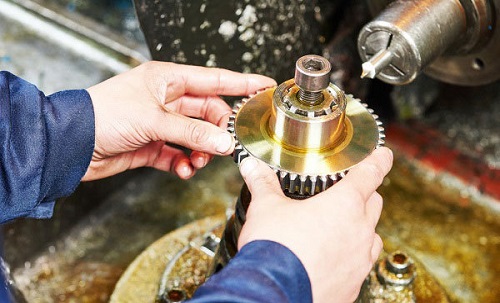In order to avoid undercut, reduce the size of the transmission structure, and improve the contact strength of the tooth surface, the displacement gear is widely used. Generally, different displacement coefficients need to be selected according to the working conditions of the gear, the development of material heat treatment, and the requirements of performance analysis indicators. In recent years, in order to reduce the contact stress of the tooth surface and improve the anti-adhesion ability of some heavy-duty gears, gear transmissions with large displacement coefficients have been designed.
Make the maximum sliding rate close to the same; some open gears are designed to resist wear and improve the bending strength of the gears. Select the positive displacement design with the total displacement coefficient as large as possible, so that the gears can be controlled without changing the structure and increasing the cost of manufacturing enterprises. condition. Improve our bearing performance and service life, and give full play to the superiority of the displacement gear.
A gear transmission system that conforms to the corresponding theoretical tooth profile and theoretical tooth direction does not necessarily have good dynamic performance. Important gearing technology can often be designed as improved gears. Now, not only for those machines with noise reduction requirements, the development of gears requires the shape of the crowns or gear dressing drums, but also the intelligent design of the repair of our entire tooth profile and tooth orientation. Especially for high-power, high-speed and heavy-duty gear transmission, due to the influence of gear tooth surface deformation and manufacturing equipment installation errors, as well as the change of static tooth surface contact social conditions, the vibration of different gear operations is caused.
By making the pinion harder than the gear, there are beneficial results from a wear point of view. A pinion has fewer teeth than a gear, each tooth naturally does more work, and the difference in hardness between the pinion and gear (depending on the ratio) is used to balance the wear rate. Harder pinion teeth correct errors in the gear teeth to some extent by initial wear, and then smooth the gear teeth and increase their ability to withstand wear due to cold working of the surface. In applications with high gear ratios and no severe shock loads, case-hardened pinions that run with oil-treated gears, treated to Brinell hardness of cuttable teeth, are a good combination.

original source: https://www.vanhmt.com/company/308.html
Media Contact
Company Name: QingdaoVanhon Machinery Technology Co.,Ltd
Email: Send Email
Phone: +86-532-80981116
Country: China
Website: https://www.vanhmt.com/













